Wayne Kramer, Guitarist of Legendary Punk Band MC5 and Activist, Dead at 75
- Oops!Something went wrong.Please try again later.
- Oops!Something went wrong.Please try again later.
- Oops!Something went wrong.Please try again later.
- Oops!Something went wrong.Please try again later.
- Oops!Something went wrong.Please try again later.
The musician was known as one of the founding members of the influential Detroit punk band MC5

Scott Dudelson/Getty
Wayne KramerWayne Kramer, founding member of the legendary Detroit punk band MC5, has died at age 75.
A statement was posted to his official Instagram and the profile of the nonprofit that he founded, Jail Guitar Doors USA, on Friday. “Wayne Kramer passed away today peacefully from pancreatic cancer,” read the statement shared in the caption of an old photo of Kramer performing.
“He will be remembered for starting a revolution in music, culture, and kindness,” the note continued.
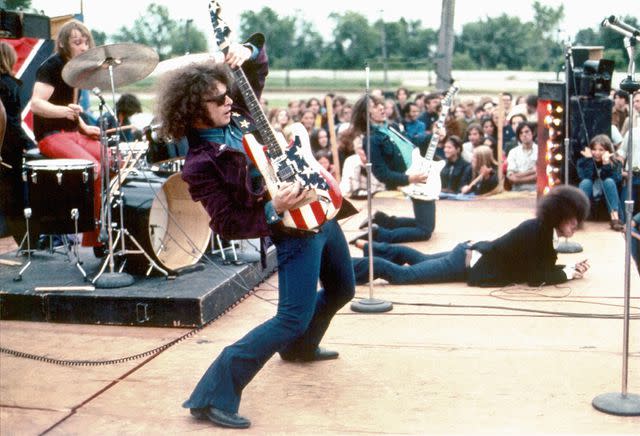
Leni Sinclair/Michael Ochs Archive/Getty
Wayne Kramer performing with MC5Related: Beach Boys' Brian Wilson Announces Death of 'Savior' Wife Melinda: 'She Was My Anchor'
The statement concluded by saying fans could “honor Wayne” by making a donation to his organization committed to providing musical instruments and mentorship to people who are incarcerated.
The musician, known for being a punk pioneer and longtime political activist, was born Wayne Kambes on April 30, 1948 in Detroit, Michigan, according to Britannica.
Along with bassist Michael Davis, rhythm guitarist Fred “Sonic” Smith, drummer Dennis Thompson and vocalist Rob Tyner, Kramer co-founded a band in suburban Detroit in 1965. Per Britannica, the project began as a bar band in which the group played covers, but it eventually evolved into the genre-bending rock group the MC5, or the Motor City Five.
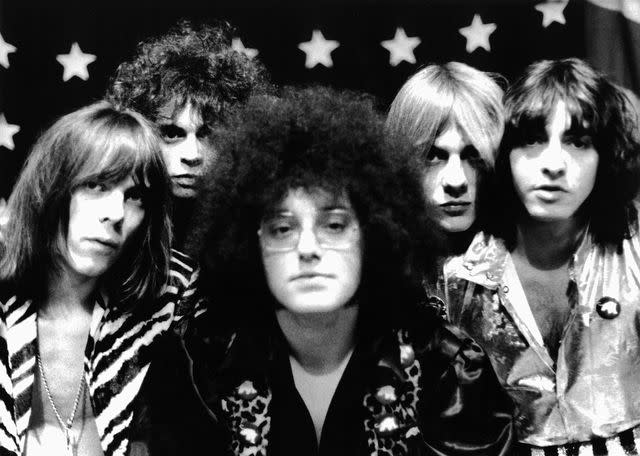
Leni Sinclair/Michael Ochs Archive/Getty
From left: Fred "Sonic" Smith, Wayne Kramer, Rob Tyner, Wayne Kramer, Dennis "Machine Gun" Thompson and Michael Davis of MC5The group became even more fully formed when they met John Sinclair, a writer and founder of the anti-racist socialist group known as the White Panther Party, according to NPR. While Sinclair never played in the band, as their manager, he encouraged them to write songs expressing their political frustrations and exploring the tension in Detroit in the late ‘60s — or the radical music that’s became part of their legacy.
Never miss a story — sign up for PEOPLE's free daily newsletter to stay up-to-date on the best of what PEOPLE has to offer, from celebrity news to compelling human interest stories.
“Young people in general felt unified in resisting the efforts of the older generation,” Kramer told Rolling Stone in a 2018 interview about the MC5’s involvement in politics. “We thought they were messing it up and it was our duty as patriots to try and straighten this business out and the MC5, we took it personally, in as much as this is my neighborhood. These are my neighbors. This is my family and we’re all on the receiving end of a blunt stick coming down on our heads."
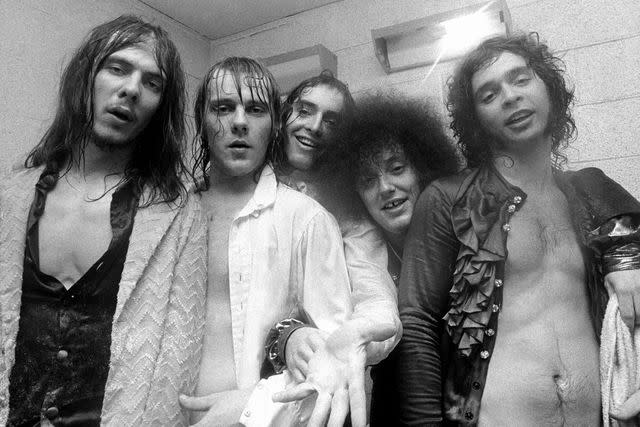
Michael Ochs Archives/Getty
MC5Related: Iggy Pop Says AC/DC's Ex-Manager Once Asked Him to Join the Band: 'I'm Not What They Needed'
MC5 gained a reputation for their leftist lyricism and politically-charged stage show and famously played a concert outside of the 1968 Democratic National Convention as a part of the anti-war effort’s protest of the Vietnam War. According to AllMusic, there they caught the attention of Elektra Records and went on to secure their first record deal to release their influential debut album Kick Out the Jams in 1969.
After releasing the LPs Back in the USA in 1970 and High Time in 1971, MC5 disbanded due to lack of commercial success and addiction issues within the band, including Kramer, who was arrested on drug related charges and spent four years in jail, per NPR.
Following his release from prison, the musician produced a handful of punk acts coming out of New York City and eventually launched a solo career in the ‘90s with albums like Hard Stuff, released by alternative rock label Epitaph.
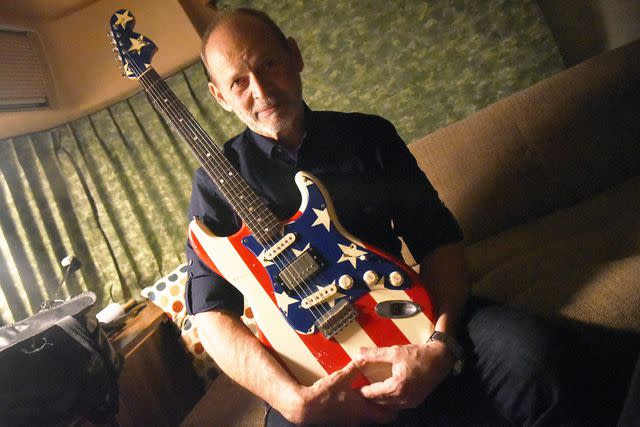
Chris McKay/Getty
Wayne KramerHe held onto his punk spirit even in his later years, devoting much of his energy to the nonprofit that he co-founded with his wife Margaret Kramer in 2009, Jail Guitar Doors U.S.A.
Both Kramer’s incendiary guitar-playing in MC5 and leftist activism has been a source of inspiration for punk acts that followed, such as The Clash.
Tom Morello of Rage Against the Machine was among his proteges and paid tribute to the late rocker with a thoughtful post on Instagram. In a lengthy tribute, he called Kramer “the best man [he’s] ever known.”
“I’ve played with Wayne in prisons and watched him transform lives, he was just unbelievable. Wayne had a soft heart but was also Detroit tough as nails," the guitarist, 59, wrote.
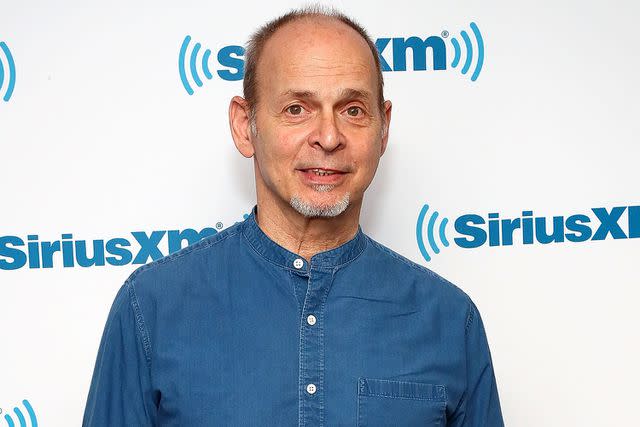
Astrid Stawiarz/Getty
Wayne KramerMorello added, “Wayne was a guardian angel to so many. But mostly Wayne was a great friend, a beautiful comrade, and an older brother who helped me to forgive myself for making mistakes, take chances with my music, and never be afraid to help those in need. The countless lives he’s touched, healed, helped and saved will continue his spirit and legacy."
While speaking with SPIN in 2017, Kramer reflected on his and MC5’s legacy. “Well, it holds up because what the band represented, at its best, was a direct connection with people’s concerns and the sense of possibilities — that there could be new music or new politics or a new lifestyle, new culture,” he said. “That, with effort in full measures and going all the way with your ideas, you can actually make something happen. One person can make a difference. A handful of people can make a big difference. A couple dozen people could change the world if they were organized and committed.”
For more People news, make sure to sign up for our newsletter!
Read the original article on People.

